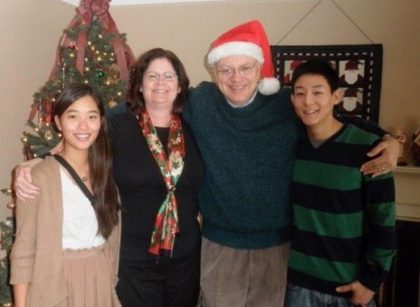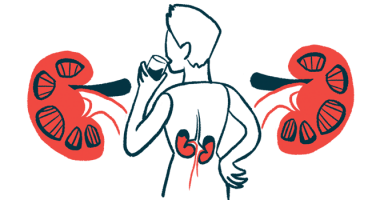A Legacy that Reminds Us of the Importance of Organ Donation

From left: Becca Atherton, Lauren Johnson, Rebecca Butler, Dani Epstein, and Kathleen Sheffer at PHA International Conference in 2010. (Courtesy of Kathleen Sheffer)
April is National Donate Life Month, a chance to celebrate those who have saved lives through organ donation. Not everyone can be an organ donor — most people won’t be — but everyone can inspire organ donor registration.
Rebecca Joy Butler’s legacy has inspired thousands of people to register as organ donors. I met Rebecca (Becky) only once, at a Pulmonary Hypertension Conference a year before she died. Our bond was formed in one night of conversation about the challenges of being a young adult with pulmonary hypertension. Concealing infusion pumps and applying to college and dating, oh my. We kept in touch via Facebook and were texting the night she was hospitalized with hemoptysis, the same emergency that prompted my transplant five years later. Becky was on the waiting list for a lung transplant, but donor organs did not come available in time, as they did for me. She texted me, “Goodnight,” and passed away the next day.
Losing Becky when she was just 20 years old was tragic. She was a member of Alpha Gamma Delta sorority, attending college at Wayne State University. Becky was an exceptionally kind person and true friend. In grief, we idealize those we’ve lost, but these aren’t platitudes; what friends and family have done in her honor speaks volumes about who she was in life.
Gift of Life Michigan works closely with colleges and universities to promote organ, tissue, and eye donation. Their biggest campaign is the annual Gift of Life Michigan Campus Challenge, which harnesses the energy of school rivalries. Each school receives a unique link to the donor registry and one point each time someone uses the link to sign up. Campus events involve students, faculty, and staff during the five-week competition. At the end of the Campus Challenge, Gift of Life Michigan awards trophies to two top schools: the school that registers the most new donors, and the school that registers the highest percentage of its student population.
Wayne State has won the Gift of Life Michigan Campus Challenge seven years in a row — every year since Becky’s passing. The challenge has been running for 15 years and inspired 40,000 people to join the Michigan Organ Donor Registry. In addition to their involvement in the Campus Challenge, Becky’s parents created a memorial endowed scholarship in her name.
I think of Becky often, but I highlight her role in organ donation registration today because it has always stood out to me as a prime example of how the PH and transplant communities can and should work together. Though many pulmonary hypertension patients fear transplant and prefer to avoid the topic altogether, a lung, double-lung, or heart-lung transplant may be the only option to prolong our lives (it was for me). At PH Association fundraiser dinners my family hosted at our home, I would set up an iPad for guests to sign up at organdonor.gov as they walked in the door (yes, it’s that fast). Raising awareness of PH goes hand-in-hand with educating about organ donation.
I wish Becky had received the gift of life. I wish I could say that her story is unique and that I haven’t lost more friends who were on the transplant waiting list. I wish I didn’t have to keep writing about the huge need for organ donors. For now, I’m choosing to be grateful for the immeasurable impact my friend has had and humbled by the gift I have been given.
***
Note: Pulmonary Hypertension News is strictly a news and information website about the disease. It does not provide medical advice, diagnosis, or treatment. This content is not intended to be a substitute for professional medical advice, diagnosis, or treatment. Always seek the advice of your physician or other qualified health provider with any questions you may have regarding a medical condition. Never disregard professional medical advice or delay in seeking it because of something you have read on this website. The opinions expressed in this column are not those of Pulmonary Hypertension News or its parent company, BioNews Services, and are intended to spark discussion about issues pertaining to pulmonary hypertension.











Comments